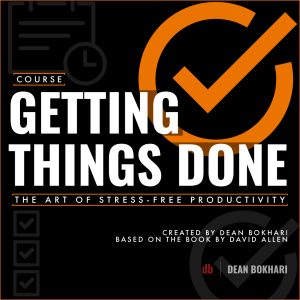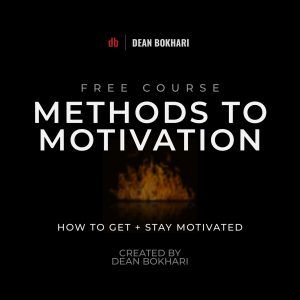Book Summary
Can’t Hurt Me: Master Your Mind and Defy the Odds
by David Goggins • Summarized by Dean Bokhari
Buy Book: Print | Kindle | Audiobook
Member Downloads: Book Summary (PDF) | Audio Summary (MP3)
*Important note: this book summary contains explicit language which may be inappropriate for some readers.
About
Navy SEAL. Army Ranger. Ultra-marathon runner. Ultra-distance cyclist. Triathlete. Motivational speaker. Guinness World Record holder for having completed 4,030 pull-ups within a 17-hour period of time… Each of these accomplishments are part of one man’s life-journey. His name is David Goggins, and he’s the author of Can’t Hurt Me: Master Your Mind and Defy the Odds.
In this incredibly inspiring autobiographical self-help book, David shares his journey of transformation, including how he went from being a 297-pound exterminator to one of the toughest men on the planet.
The man has managed to overcome unimaginable pain and tragedy in life—and still found a way to conquer his challenges and accomplish his goals. And in Can’t Hurt Me, he combines his life story with a series of strategies to help you master your mind, defy the odds, and accomplish your own goals.
Here’s what you’ll learn about in this book summary
- The keys to developing mental toughness
- How to hold yourself accountable to achieve your goals
- How to condition yourself to push past pain and adversity to accomplish your highest ambitions.
- and much, much more…
Summary in a sentence
By regularly and intentionally seeking difficulty and discomfort in your life, and by demanding more from yourself—physically, mentally, emotionally, and spiritually—you can achieve the extraordinary and make what you previously thought impossible, possible. —click-to-tweet
Crucial Quotes
“Our culture has become hooked on the quick-fix, the life hack, efficiency. Everyone is on the hunt for that simple action algorithm that nets maximum profit with the least amount of effort. There’s no denying this attitude may get you some of the trappings of success, if you’re lucky, but it will not lead to a calloused mind or self-mastery. If you want to master the mind and remove your governor, you’ll have to become addicted to hard work. Because passion and obsession, even talent, are only useful tools if you have the work ethic to back them up.” —David Goggins, Can’t Hurt Me
“You are in danger of living a life so comfortable and soft, that you will die without ever realizing your true potential.” —David Goggins, Can’t Hurt Me
“It’s a lot more than mind over matter. It takes relentless self discipline to schedule suffering into your day, every day.” —David Goggins, Can’t Hurt Me
BIG IDEAS
Book Summary: Can’t Hurt Me by David Goggins
- The Accountability Mirror
- The 40% Rule
- What if?
- Bring Your Best When You Feel Your Worst
- Callous Your Mind
- Seeds Burst From the Inside Out
1. The Accountability Mirror
“Tell the truth about the real reasons for your limitations and you will turn that negativity, which is real, into jet fuel. Those odds stacked against you will become a damn runway. There is no more time to waste. Hours and days evaporate like creeks in the desert. That’s why it’s okay to be cruel to yourself as long as you realize you’re doing it to become better. We all need thicker skin to improve in life. Being soft when you look in the mirror isn’t going to inspire the wholesale changes we need to shift our present and open up our future …. the only reason I didn’t become just another statistic is because, at the last possible moment, I got to work.” —David Goggins, Can’t Hurt Me
The aforementioned crucial quote is about Goggins’ first experience with what he calls the “Accountability Mirror,” which is a reality-based ritual he started during a point in his life when nothing seemed like it was going his way.
Here’s how the Accountability Mirror works: Goggins would stand in front of his bathroom mirror and get real with himself about where he was and where he wanted to be. He’d yell at himself, call himself names, and have full-on conversations with himself about the type of person he needed to become in order to achieve his goals.
After his first experience with the Accountability Mirror, Goggins began to put the pieces of his life together…
He stopped caring about what all the “cool” kids in school thought about him. He stopped sagging his pants and started tucking his shirt in. He stopped slacking off and got his grades up. He wrote down his goals on Post-It notes and put them on his mirror. Each day, he’d stand in front of his mirror and his goals and hold himself accountable.
He maintained this habit of holding himself accountable into adulthood and attributes it as one of the contributors to his mental toughness and success.
Bottom line? The Accountability Mirror is something you’ll find helpful no matter what stage of life you’re in.
Actionable insights
- 1. Start your own daily ritual of standing in front of the Accountability Mirror. Look into it on a daily basis and tell yourself the truth about where you are and where you want to be.
- 2. Write down your goals on Post-It notes and tag them to your Accountability Mirror. Hold yourself accountable to your goals on a daily basis.
One last (f-bomb laden) quote on this Big Idea before we move on:
“If you look into the mirror and you see a fat person, don’t tell yourself that you need to lose a couple of pounds. Tell the truth. You’re fucking fat! It’s okay. Just say you’re fat if you’re fat. The dirty mirror that you see every day is going to tell you the truth every time, so why are you still lying to yourself? So you can feel better for a few minutes and stay the fucking same? If you’re fat you need to change the fact that you’re fat because it’s very fucking unhealthy. I know because I’ve been there.”
☝️ That’s an example of getting real with yourself in front of the Accountability Mirror…
What do you see when you stand in front of yours?
2. The 40% Rule
“When you think that you are done, you’re only 40% in to what your body’s capable of doing. That’s just the limits that we put on ourselves.” —David Goggins, Can’t Hurt Me
Imagine you’re driving a car with a top speed of 180 MPH.
This car is equipped with an internal mechanism that alerts you when you’re going faster than usual.
As you cruise down the freeway, you decide to see how fast this bad boy can go—so you push the gas and let it rip.
The car picks up speed, getting faster and faster by the minute.
Then, as you approach 100 MPH, you notice something: the steering wheel starts to tremble, letting you know you’re starting to push the car’s acceleration a little too hard…
But you think, “Wait, can’t the car go 180? I want to push this car to the max! Why do I feel like I need to slow down?”
Exactly.
Human beings are the same way…
We don’t always need to push ourselves to the max, but at certain times and with certain endeavors, we do.
And just like the car we’re driving, we have an internal “Governor” that tells us to stop way before we’ve reached our max.
Here’s the thing: most of us tap into only 40% of what we’re truly capable of.
When you feel like giving up, when it feels like you’re too exhausted to keep going, when you believe you’ve hit your capacity—the fact is, you’re usually just 40% there… This means your mind wants you to stop, even though you’ve still got plenty of juice left in the tank!
You’re capable of more than you think.
Knowing this truth is the first step to becoming unstoppable and achieving the impossible.
Next time you feel like giving up on something, remember the 40% Rule: when you feel like giving up, you’re only at 40% capacity, which means your fuel tank is still 60% full.
Actionable insights
- To start living your life at full capacity, embrace the “discomfort zone” by pushing past your comfort zone incrementally, bit by bit. For example: if you feel like giving up after 10 pushups, push yourself to do 5 more. And next time, push yourself to do 6 more, and so on.
- You’re capable of more than you think. Use the 40% Rule to remind yourself of that. Work hard and stretch yourself just a little bit outside your comfort zone—bit by bit on a daily basis—and you’ll keep establishing those tiny points of progress as your new baselines. Bit by bit. Each and every day… Before you know it, all those things you previously believed were impossible, are now not just possible, but normal.
“The main objective here is to slowly start to remove the governor from your brain. First, a quick reminder of how this process works. In 1999, when I weighed 297 pounds, my first run was a quarter-mile. Fast forward to 2007, I ran 205 miles in thirty-nine hours, nonstop. I didn’t get there overnight, and I don’t expect you to either. Your job is to push past your normal stopping point …. Whether you are running on a treadmill or doing a set of push-ups, get to the point where you are so tired and in pain that your mind is begging you to stop. Then push past 5 to 10 percent further. If the most push-ups you have ever done is one hundred in a workout, do 105 or 110. If you normally run thirty miles each week, run 10 percent more. The bottom line is that life is one big mind game. The only person you are playing against is yourself. Stick with this process and soon what you thought was impossible will be something you do every fucking day.” —David Goggins, Can’t Hurt Me
3. What if?
“The most important conversations you’ll ever have are the ones you’ll have with yourself. You wake up with them, you walk around with them, you go to bed with them, and eventually you act on them. Whether they be good or bad. We are all our own worst haters and doubters because self-doubt is a natural reaction to any bold attempt to change your life for the better. You can’t stop it from blooming in your brain, but you can neutralize it, and all the other external chatter by asking, What if?” —David Goggins, Can’t Hurt Me
WHAT IF you worked harder to achieve your dreams?
WHAT IF you pushed past your comfort zone next time you feel like giving up?
WHAT IF you let go of all the reasons why you can’t do something, and replaced them with all the reasons why you can?
How much would it change your life? How much of a difference could you make?
And what if you decided to start… right now?
Actionable insights
- Next time you’re inspired to do something, but feel that sense of self-doubt start kicking in, stop yourself and ask:
- “What if I did _____?” Fill in the blank with what you want to do.
- Then, think about this: What would a successful outcome look like?
- And finally, follow it up with action.
4. Bring Your Best When You Feel Your Worst
“Once you’re in the heat of battle, it comes down to staying power. If it’s a difficult physical challenge you will probably have to defeat your own demons before you can take your opponent’s soul. That means rehearsing answers to the simple question that is sure to rise up like a thought bubble:
‘Why am I here?’ If you know that moment is coming and have your answer ready, you will be equipped to make the split-second decision to ignore your weakened mind and keep moving. Know why you’re in the fight to stay in the fight!
And never forget that all emotional and physical anguish is finite! It all ends eventually. Smile at pain and watch it fade for at least a second or two. If you can do that, you can string those seconds together and last longer than your opponent thinks you can, and that may be enough to catch a second wind. There is no scientific consensus on second wind. Some scientists think it’s the result of endorphins flooding your nervous system, others think it’s a burst of oxygen that can help break down lactic acid, as well as the glycogen and triglycerides muscles need to perform. Some say it’s purely psychological.
All I know is that by going hard when we felt defeated we were able to ride a second wind through the worst night of Hell Week. And once you have that second wind behind you it’s easy to break your opponents down and snatch a soul. The hard part is getting to that point, because the ticket to victory often comes down to bringing your very best when you feel your worst.” —David Goggins, Can’t Hurt Me
Goggins’ will to prosper through pain and adversity is unparalleled.
One of the major keys to success and victory, he says, often comes down to “bringing your best when you feel your worst.” And you don’t need to go through Navy SEAL Hell Week to put that nugget of wisdom into action within your own life, either—you can start using this knowledge right away.
In fact, just knowing this truth is helpful.
Knowing the importance of “callousing your mind” to hard and painful things—over and over again—helps us prosper. It helps us start to live by one of the core messages of the book: to do what we need to do, regardless of whether we feel like it or not.
Bring your best when you feel your worst.
The worse you feel, the more committed you must become. Put everything into your goals and dreams and you’ll astonish yourself with what you’re capable of.
Another notable idea that Goggins shares is about being prepared for adversity and expecting to face obstacles on our individual pathways to success.
Knowing about obstacles will help you overcome them, rather than give up when the going gets tough.
The final element to this Big Idea about bringing your best when you feel your worst is this: Know your WHY…
Why is it important to you to push through pain and adversity when it hits you?
What’s YOUR why? Have it in mind. Write it down. Commit it to memory.
Then, use it to push past the pain you KNOW will show up.
Actionable insights
- Remember that you’ve always got more in the tank. Keep going and you’ll hit that second wind.
- EXPECT problems and obstacles to pop up on your way towards achieving your goals so that you aren’t surprised when they do—and have a plan in place to deal with them if you can.
- Know your Why—the reason(s) you’re doing what you’re doing; the purpose behind the actions you’re taking to achieve a goal or dream.
- For more about how to find your Why, read (or listen) to this free guide: How to Find Your Why
5. Callous Your Mind
“Time stood still as I realized for the first time that I’d always looked at my entire life, everything I’d been through, from the wrong perspective. Yes, all the abuse I’d experienced and the negativity I had to push through challenged me to the core, but in that moment I stopped seeing myself as the victim of bad circumstances, and saw my life as the ultimate training ground instead. My disadvantages had been callousing my mind all along …. I remember my very first day in the gym back in Indiana. My palms were soft and quickly got torn up by the bars because they weren’t accustomed to gripping steel.
But over time, after thousands of reps, my palms built up thick callous as protection. The same principle works when it comes to mindset. Until you experience hardships like abuse and bullying, failures and disappointments, your mind will remain soft and exposed.
Life experience, especially negative experiences, help callous the mind. But it’s up to you where that callous lines up. If you choose to see yourself as a victim of circumstance into adulthood, that callous will become resentment that protects you from the unfamiliar. It will make you too cautious and untrusting, and possibly too angry at the world. It will make you fearful of change and hard to reach, but not hard of mind.
That’s where I was as a teenager, but after my second Hell Week, I’d become someone new. I’d fought through so many horrible situations by then and remained open and ready for more. My ability to stay open represented a willingness to fight for my own life, which allowed me to withstand hail storms of pain and use it to callous over my victim’s mentality. That shit was buried under layers of sweat and hard fucking flesh, and I was starting to callous over my fears too. That realization gave me the mental edge I needed….” —David Goggins, Can’t Hurt Me
David Goggins did not have an easy childhood or an easy adulthood. He had an extremely abusive father who beat him, his brother, and his mother. But physical abuse was only the half of it. He’s endured all manner of psychological abuse as well. He’s suffered through poverty. He’s seen murder. The stories he shares in the book have a very visceral, powerful effect. The sheer amount and intensity of these painful life-experiences are enough to make anyone feel like a victim—but not Goggins…
He could’ve chosen to give up and blame his circumstances for his lack of success, but he instead chose to be the hero of his story rather than the victim. He took his pain and used it to callous over his mind, which helped him develop a rock-solid mindset to prosper no matter what he was doing.
In Goggins’ own words: “It takes great strength to be vulnerable enough to put your ass on the line, in public, and work towards a dream that feels like it’s slipping away.”
Don’t let your dreams slip away. Stay the course. Train hard. Callous your mind!
One more nugget of wisdom on mindset and work ethic: “visualization will never compensate for the work undone. You cannot visualize lies. All the strategies I employ to answer the simple questions and win the mind game are effective because I put in work. It’s a lot more than mind over matter. It takes relentless self-discipline to schedule suffering into your day, every day, but if you do, you’ll find that at the other end of that suffering is a whole other life just waiting for you.”
Actionable insights
- Next time you’re doing something difficult and feel like giving up, remember: hard things make you stronger. This is what you’ve been training for. Keep going. Build up those callouses. Eventually, what feels hard today will feel like a piece of cake tomorrow. Don’t be the victim, be the hero.
6. Seeds Burst From the Inside-Out
“That doesn’t mean I was having any fun. I wasn’t. I was over it. I didn’t want to do pull-ups anymore, but achieving goals or overcoming obstacles doesn’t have to be fun. Seeds burst from the inside out in a self-destructive ritual of new life. Does that sound like fucking fun? Like it feels good? I wasn’t in that gym to get happy or do what I wanted to be doing. I was there to turn myself inside out if that’s what it took to blast through any and all mental, emotional, and physical barriers.” —David Goggins, Can’t Hurt Me
Seeds bursting from the inside out in a self-destructive ritual of new life… How’s that for mental imagery?
It’s a powerful image to think about, because it brings to mind that in order to level-up in our lives we must break down the barriers that hold us back.
Oftentimes, those barriers are self-created.
The crucial quote with which we opened this Big Idea comes from a chapter titled, “The Empowerment of Failure.”
In this chapter, Goggins shares how he became a Guinness World Record holder for completing the most pull-ups within a 24-hour time span.
Well, within a period of 17 hours, this man cranked out 4,030 pull-ups.
Absolutely incredible.
This was an incredible feat to pull off, but it took two failed attempts before he could successfully put his name in the record books on his third go.
His first failure at breaking the record even happened on live television! He didn’t feel like much of a hot-shot after that one, but it didn’t deter him from trying again.
On his second attempt, he failed again. This time around, he tried so hard that the layers of skin on the palms of his hands were so shredded from gripping the pull-up bar that they had gotten to the point that the layers of skin and callous on his palms had peeled down to the NERVES. Continuing any further would’ve been too dangerous for Goggins. So, he walked away with his head down once again.
Before his third and final attempt at breaking the world record for pull-ups, he got more strategic about what he needed to do in order to successfully accomplish his goal…
First, he utilized something from his Navy SEAL days known as “After Action Reports,” which is a form of analyzing and evaluating your performance by: 1) reviewing what went well, 2) reviewing what went wrong or needs improvement, and 3) what can be done differently in the future.
Using the information gleaned from his After Action Reports, Goggins got to work, breaking down the details of what needed to be done in order to make his next attempt a successful one.
Another important element was Goggins’ ability to not let his failures get the best of him. He didn’t blame anyone else for his failures, he decided to make it happen.
He didn’t know exactly when the record would be his, but he DECIDED it would be eventually: “It might be in two months or twenty years, but once I decided it belonged to me and decoupled it from the calendar, I was filled with confidence and relieved of any and all pressure because my task morphed from trying to achieve the impossible into working toward an inevitability.”
Actionable insights
- Consider decoupling your goals from your calendar. Sometimes your goals take more time or different strategies to achieve than you may have originally intended or anticipated. That’s OK. Learn from your failures and press-on.
- DECIDE to make your goals a reality, determine what you need to do in order to make it happen, and then get to work taking action until you make the impossible possible.
- Remember: seeds burst from the inside out. Use that metaphor to blast through your barriers, master your mind, and defy the odds.
Closing notes
Key takeaways
- No matter your aim in life, one thing is for sure: if you’re going to aim high, there will be obstacles along the way. Your job? EMBRACE those obstacles and USE them to strengthen yourself—physically and psychologically; personally and professionally—as you march toward your dreams and successfully accomplish your goals.
- Here’s one final crucial quote to keep in mind as we close out this book summary of Can’t Hurt Me: “It won’t always go your way, so you can’t get trapped in this idea that just because you’ve imagined a possibility for yourself that you somehow deserve it. Your entitled mind is dead weight. Cut it loose. Don’t focus on what you think you deserve. Take aim on what you are willing to earn!” …So, what are you willing to EARN? Whatever you’re after, decide today to develop the discipline, embrace the struggle, and do whatever it takes to master your mind and defy the odds.
About the Author
- David Goggins is a retired Navy SEAL and the only member of the U.S. Armed Forces ever to complete SEAL training, US Army Ranger School, and Air Force Tactical Air Controller training. He has competed in over 60 ultra-marathons, triathlons, and ultra-triathlons, within which he’s set multiple course records and has regularly placed in the top 5. Goggins is also a Guinness World Record holder for having completed 4,030 pull-ups in 17 hours. As a public speaker, David Goggins has also had the opportunity to share his story with thousands of people from a wide range of companies and organizations around the world. Learn more + connect: https://davidgoggins.com
Notes + Resources
- Buy the original book
- Listen to the audio summary of Can’t Hurt Me with a membership
Bonus Notes + Crucial Quotes
“We live in a world with a lot of insecure, jealous people. Some of them are our best friends. They are blood relatives. Failure terrifies them. So does our success. Because when we transcend what we once thought possible, push our limits, and become more, our light reflects off all the walls they’ve built up around them. Your light enables them to see the contours of their own prison, their own self-limitations. But if they are truly the great people you always believed them to be, their jealousy will evolve, and soon their imagination might hop its fence, and it will be their turn to change for the better.” —David Goggins, Can’t Hurt Me
“In the military we always say we don’t rise to the level of our expectations, we fall to the level of our training,” —David Goggins, Can’t Hurt Me “But as I became conditioned to the risk, my tolerance for that same fear increased. It was always there, but I was used to the discomfort and before long I was able to handle multiple tasks on a jump and appreciate the moment too.” —David Goggins, Can’t Hurt Me
“The Buddha famously said that life is suffering. I’m not a Buddhist, but I know what he meant and so do you. To exist in this world, we must contend with humiliation, broken dreams, sadness, and loss. That’s just nature. Each specific life comes with its own personalized portion of pain. It’s coming for you. You can’t stop it. And you know it.” —David Goggins, Can’t Hurt Me
“I thought I’d solved a problem when really I was creating new ones by taking the path of least resistance.” —David Goggins, Can’t Hurt Me
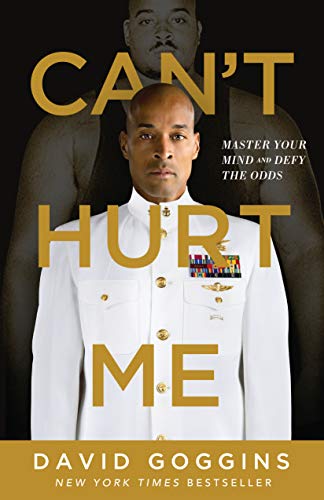
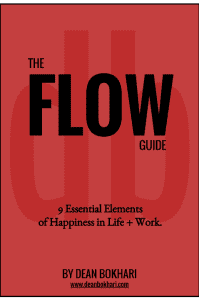
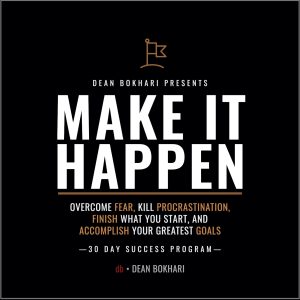
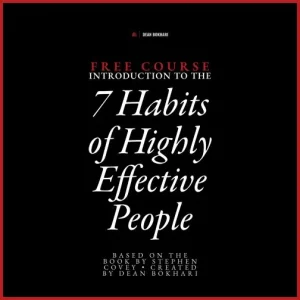 Free Course: Intro to The 7 Habits of Highly Effective People by Stephen Covey • Instructed by Dean Bokhari.
Free Course: Intro to The 7 Habits of Highly Effective People by Stephen Covey • Instructed by Dean Bokhari.